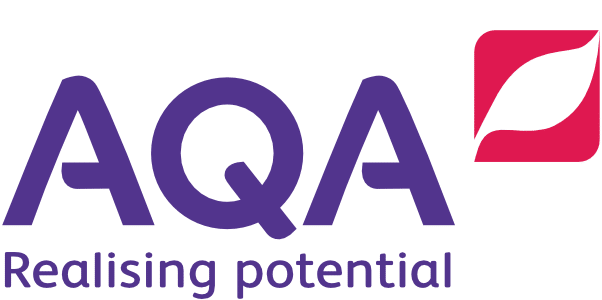Welcome to our humble philosophy home!
A level Philosophy is, by nature, a qualification. So it has a syllabus, exam papers, marking schemes, model answers, textbooks, exam reports…
AQA documents
Links take you to the relevant pages of the AQA site.
Syllabus
Here is the full specification
Public exam dates (Year 13, 2025)
Assessment is by two 3 hour exams:
- Paper 1 (Epistemology & Ethics): Tuesday 13 May 2025 am
- Paper 2 (Metaphysics): Tuesday 20 May 2025 am
See the AQA exam timetable (2025)
Paper 1: Epistemology & Ethics
- Paper 1 (2023); mark scheme; exam report
- Paper 1 (2022); mark scheme; exam report
- Paper 1 (2021); mark scheme; example answers: epistemology, ethics
- Paper 1 (2020); mark scheme
- Paper 1 (2019): no longer available on the AQA site
- Paper 1 (Sample); mark scheme; example answers
Paper 2: Metaphysics
- Paper 2 (2023); mark scheme; exam report
- Paper 2 (2022); mark scheme; exam report
- Paper 2 (2021); mark scheme; example answers: God, mind
- Paper 2 (2020); mark scheme
- Paper 2 (2019): no longer available on the AQA site
- Paper 2 (Sample); mark scheme; example answers
Note: The 2024 question papers won’t be posted by AQA until June 2025.
Grade boundaries
Each paper is marked out of 100. So the maximum mark is 200.
| Grade | 2019 | 2020 | 2021 | 2022 | 2023 | 2024 |
| A* | 154 | 137 | 137 | 140 | 157 | 155 |
| A | 131 | 114 | 113 | 119 | 136 | 133 |
| B | 107 | 92 | 92 | 95 | 110 | 108 |
| C | 83 | 70 | 72 | 71 | 84 | 83 |
| D | 59 | 49 | 52 | 47 | 58 | 59 |
| E | 35 | 28 | 32 | 23 | 32 | 35 |
page last updated: 16.08.2024
Textbooks
A brief overview of the A level Philosophy textbooks:
Michael Lacewing


According to one critic cited by the publisher, Lacewing ”really brings the A-Level philosophy syllabus to life”. Umm…
My view: sterile texts that reduce philosophy to something technical. Nevertheless, required reading given Lacewing’s status as main examiner.
Christian Feest


Our students have used and liked Feest’s book and website. The entire A level specification is covered.
My view: An excellent book that makes the A level accessible. The title How to Get an A… is a bit too ambitious though.
Daniel Cardinal, Gerald Jones, & Jeremy Hayward



There are four books by these authors: two long textbooks and two slim revision guides.
My view: The detailed textbooks are easier to read than Lacewing’s. Concepts are explained thoroughly. The revision guides usefully isolate key points.
K. Lancaster


One of our students, who went on to study Philosophy at Durham, used it fairly extensively.
My view: It outlines the subject in a skeletal form that students might find easier to grasp. Relatively brief and so not intimidating.
Primary texts recommended by AQA
AQA has produced lists of recommended primary texts.
These links to take you to electronic versions of the texts that are in the public domain:
Epistemology
Berkeley, George (1713), Three Dialogues Between Hylas and Philonous
Descartes, René (1641), Meditations on First Philosophy
Gettier, Edmund (1963), ‘Is Justified True Belief Knowledge?’
Hume, David (1748), An Enquiry Concerning Human Understanding, Sections 2 and 4 (part 1)
Leibniz, Gottfried Wilhelm (1705), New Essays on Human Understanding, Preface and Book 1
Locke, John (1690), An Essay Concerning Human Understanding, Book 1 (esp. Chapter 2), Book 2 (esp. Chapters 1, 2, 8 and 14), Book 4 (esp. Chapter 11)
Plato, Meno, from 81e
Russell, Bertrand (1912), The Problems of Philosophy, Chapters 1 and 2
Trotter Cockburn, Catharine (1732), (attrib) ‘A Letter from an anonymous writer to the author of the Minute Philosopher’ Appendix to G Berkeley Theory of Vision Vindicated and Explained
Zagzebski, Linda (1999), ‘What is Knowledge?’
Ethics
Annas, Julia (2006), Virtue Ethics
Aristotle, Nicomachean Ethics
Ayer, Alfred J (1973/1991), The Central Questions of Philosophy, pages 22–29
Ayer, AJ (1946), Language, Truth and Logic, (esp. Chapters 1 and 6)
Bentham, Jeremy (1789), Introduction to the Principles of Morals and Legislation, Chapters 1 and 4
Diamond, Cora (1978), Eating Meat and Eating People
Foot, Philippa (1972), Morality as a System of Hypothetical Imperatives
Hare, Richard M (1952) The Language of Morals, Chapters 1, 5, 7, 10.2
Hume, David (1739–40), Treatise of Human Nature, Book III, Part 1
Kant, Immanuel (1785), Foundations of the Metaphysics of Morals, Chapters 1 and 2
Mackie, John L (1977), Ethics: Inventing Right and Wrong, Chapter 1, Sections 8 and 9
Mill, John Stuart (1863), Utilitarianism, Chapters 1, 2, 4, 5
Moore, George E (1903), Principia Ethica, Sections 6–14
Smart, Jack J C & Williams, Bernard (1973), Utilitarianism: For and Against, Chapters 2 and 3

